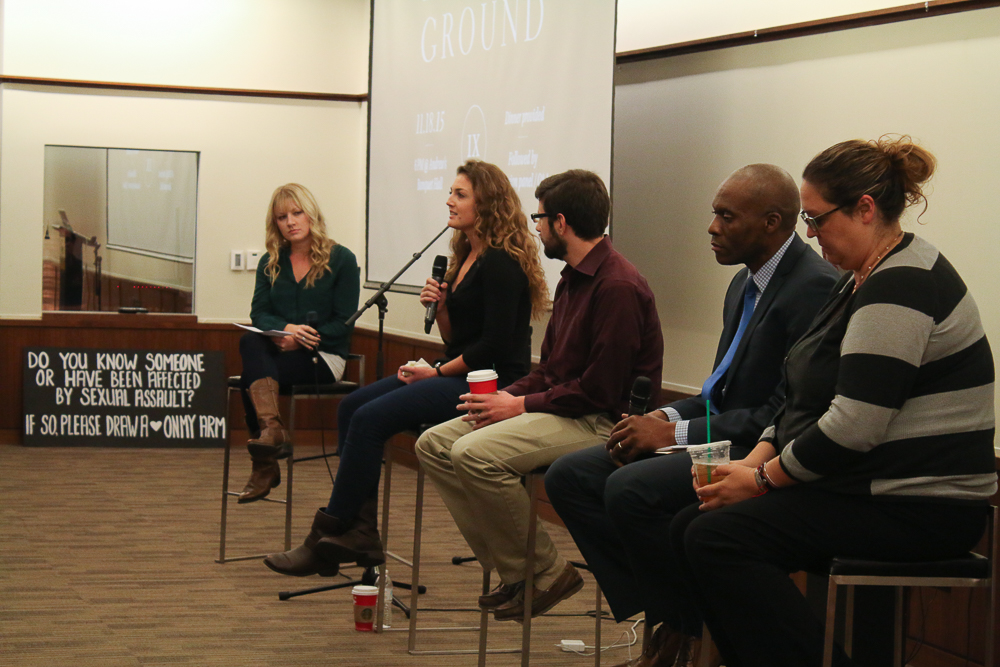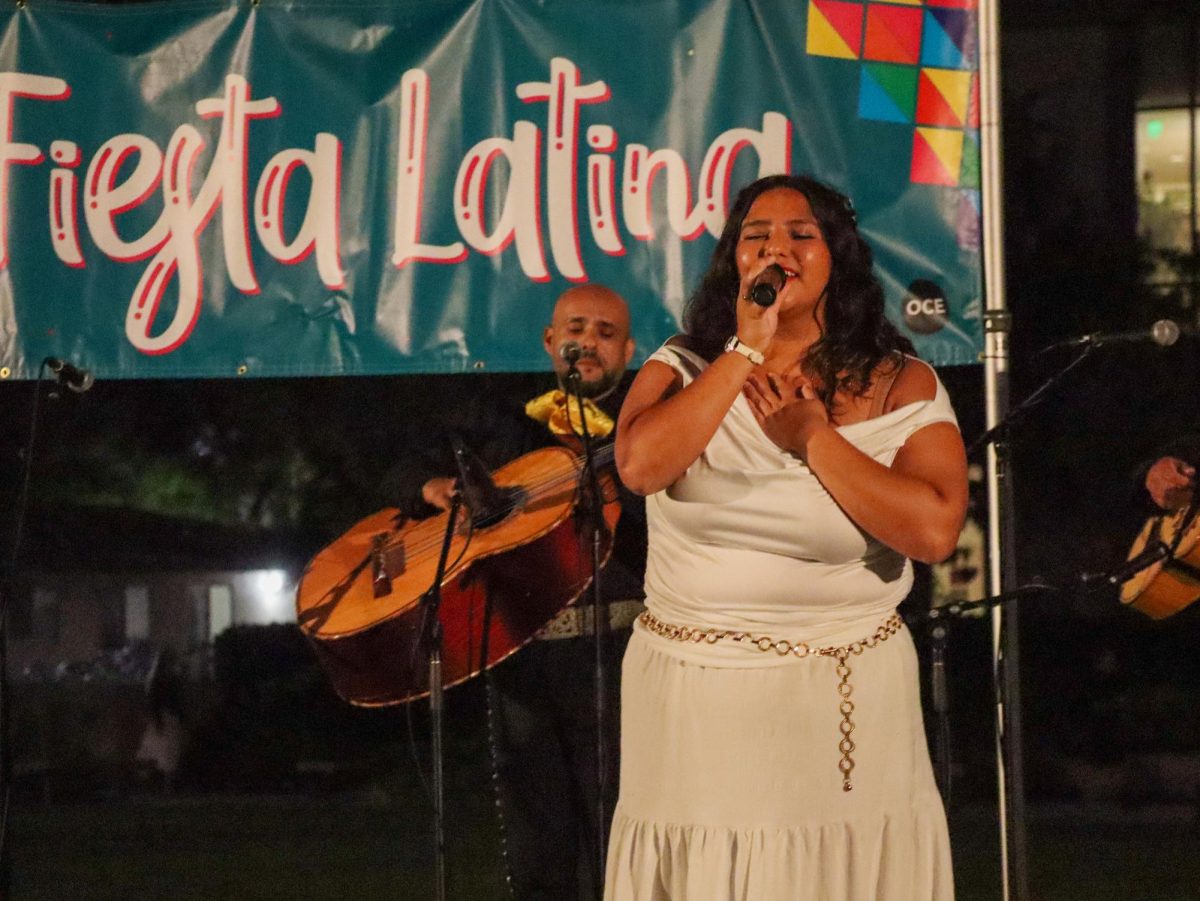Five Biola students organized a showing of “The Hunting Ground”, a college-level documentary, that was followed by a panel of Biola faculty that spoke on the issue of sexual assault on university campuses.
Three blindfolded, female students dressed in black partnered with the Do Something Club in a demonstration that encouraged passersby to draw hearts on their arms if they personally or someone they knew had experienced sexual assault. By the time the event had ended at 12:30 p.m. on Monday, their arms were covered in hearts.
Statistically, one in every four women will be sexually assaulted during her time at university education, according to a spring 2015 study of 27 colleges by the Association of American Universities. Male students are 78 percent more likely to be sexually assaulted than men not in school.
Following the documentary screening, there was a discussion panel that included Chief John Ojeisekhoba of Campus Safety, Biola Counseling Center intern Ryan O’Farrell, department chair of sociology La Dawn Johnson and Brave Voices club president and sexual assault survivor Hayley Darien. The panel was moderated by administrative coordinator of communication studies Sarah Schwartz.
A negative light
“The Hunting Ground” stars Andrea Pino and Annie Clark, prominent figures in the age of violent sexual crime and discrimination awareness. The film unveils a hidden world of sexual assault that college administration covers up due to the financial benefits of keeping abusers’ tuition and alumni donations.
The event was planned by Project Nine, a group of five Biola communication studies majors who are devoted to raising awareness to the epidemic of sexual assault on college campuses.
“I think [Biola students see this conversation] just in a very negative light. I think the point that we want to do is be able to bring up these conversations, to be able to make it okay to talk about,’” said Jocelyn Chen, senior communication studies major and a member of Project Nine who organized the event. “People have such a desire to talk about it, there’s just no place for them to talk about it.”
Ready for the conversation
Though these conversations have been taboo or uncomfortable to talk about in general society, the women of Project Nine hope to bring this to light in a new way, unashamed and open-hearted.
“When I saw the film, I was so passionate and so inspired and just like ‘Alright, I am on fire right now, and I’m ready to hit this conversation head-on,’” said Catherine Dinius, senior communication studies major and Project Nine group member. “Just seeing how students are doing this for students, that inspired me to do that for our own community.”
Culture shock
Many students, particularly at Biola, are not even aware of the prevalence of sexual assault. The group anticipates a subtle culture shock for some students as this may be the first time they are exposed to the topic of sexual assault.
“When I saw the documentary, I was shocked that it was an issue. It’s such a hush-hush topic that we don’t even question it, we don’t even talk about it. It’s just not brought up at all,” Chen said. “And so to know all the behind-the-scenes, all the things that actually goes on, I think people will be shocked at what they find out.”
Following the film, Project Nine expressed excitement and awe at the audience’s responses: including scoffs and outbursts at such the unjust situations described in the film.
“People on campus need to know not only that sexual assault happens on college campuses, but that it happens here,” Darien said. “With how many people came, and were engaging with this, and I think it shows how we’re treating it seriously, and we’re being affected by a reality that isn’t talked about and is sort of hidden.”
Chief Ojeisekhoba stressed Biola administration is not directing favoritism towards some students over others. The film explained how administration at other universities had often favored student athletes in instances where they committed assaults against fellow students. He stressed that Campus Safety takes this issue very seriously, and sexual assault reports are investigated immediately.
“I think that historically looking at the best social movements that have affected change, that it actually comes from grassroots people and community or people it’s affecting,” Johnson said, following the panel’s discussion. “As faculty and administration, we will listen. When you guys speak, and especially in mass, we have to listen.”







